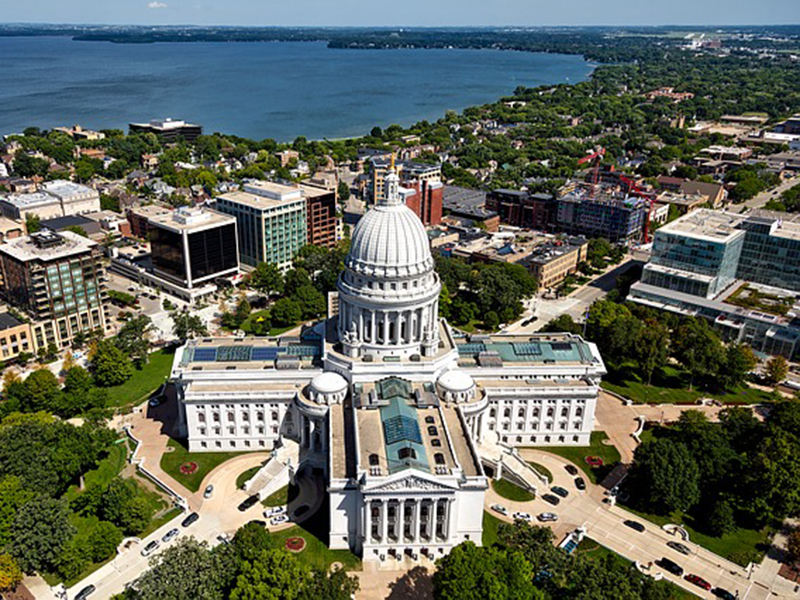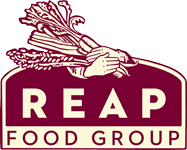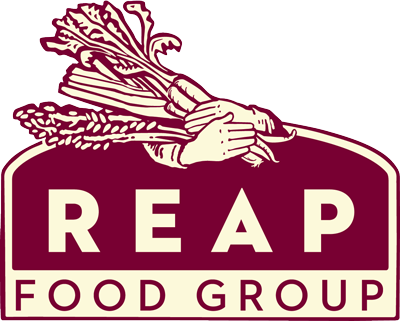Shaping A Good Food Future for Madison

Madison is a city surrounded by sustainable family farms and grappling with food justice issues. How it chooses to link these two issues has real impacts on community, economy and health, but receives little attention. There are many ways residents can help shape actions to improve the health of our community and our environment through good food. We highlight those actions here.
When the clock strikes midnight on Jan. 1, 2020, REAP board member Nan Fey hopes to toast three food-focused accomplishments in the city from 2019:
• The inclusion of a food hub facility at the former Oscar Mayer site in Madison
• Revised policies on pesticide use on city-owned land, with an eye toward protecting pollinator populations
• New, lower water use rates for community gardens located on city-owned land
Fey will have a particularly good view on the progress of these goals, since she serves as chair of the Madison Food Policy Council, created in 2012 by Mayor Paul Soglin and the Madison Common Council. While the average Madison resident may not know the Madison Food Policy Council exists, it has made huge strides in its mission to develop city-level policies, programs and resources that support a sustainable local and regional food system.
Last year, the council granted nearly $160,000 to help Luna’s Groceries set up shop in the Allied-Dunn Marsh neighborhood, its first full-service grocery store in a decade.
The council successfully developed a process so residents can have gardens on street terraces and propose plantings on other city-owned lands that produce fruit, seeds and nuts available to the community.
Its 23 members accomplish this work through smaller working groups and task forces.
Last year was a big year for the council, Fey said, as it successfully advocated for including a number of food systems-related strategies into the city’s 20-year comprehensive plan. These strategies touch on everything from land use and neighborhood access to economic development and sustainability.
“The strategy that will make the most difference overall is the commitment to develop a regional food system plan,” Fey said.
What to Watch for In 2019 (and Beyond)
The biggest “what to watch” item for 2019 in the local food system is the potential for the creation of a regional food hub in Madison. In December, the city budgeted $100,000 for a feasibility study that is expected to be completed by the middle of this year. Initial focus is on the former Oscar Mayer plant but other sites will be considered.
The long-awaited Madison Public Market is scheduled to move forward, though recent changes in location have pushed back its opening to 2021. That city-owned project will create more opportunities for residents to access local food in the city and its MarketReady program offers business training, mentorship and start-up capital for emerging food entrepreneurs. MarketReady prioritizes populations facing historic barriers to entrepreneurship including women, people of color, immigrants, low income populations, veterans, displaced workers, and LGBTQ+ individuals.
While the Madison Food Policy Council will follow the progress of these projects, it will have no shortage of its own work to do. This year, it will begin implementing healthy vending machine standards in city-owned buildings, look into establishing another urban agriculture district in the city, and revise pest management policies, among others.
It’s not always fast work, Fey said, but with determination, it’s work that will last.
“If you want a change to survive, you have to take the time to get it [implemented] at an institutional level.”
Your Involvement is Key
Nothing happens without people’s support. Fortunately, Madison residents have opportunities early this year to shape the local food system.
Vote. On April 2, City of Madison residents will head to the polls to elect a new mayor, eight new city alders, and three new school board members (the primary is Feb. 19). As candidates share their views on the future of Madison, it’s important to hear where they stand on the above food-related developments and food policy in general. The next Madison mayor will have a large say in where the city puts its resources and who it appoints to the Madison Food Policy Council.
Learn who will champion good food access. Wondering where the candidates stand on food, equity and sustainability issues? Start by reading their platforms. Attend a mayoral, aldermanic or school board forum and ask them. Take some time to listen to their vision for the city (The Cap Times podcast, “Madsplainers,” features each mayoral candidate and their vision for our city: madison.com/ct/podcasts/).
REAP will let you know when there are opportunities to hear from the candidates about their views on community and regional food systems. Subscribe to our e-newsletter and follow us on Facebook to stay informed.
Bring an issue to the Madison Food Policy Council. To keep up with the work of the Madison Food Policy Council, visit cityofmadison.com/food. Meetings are open to the public and provide a public comment period. They also post all their minutes publicly.
Interested in bringing a topic to the council? Fey has a suggestion.
“If there’s something they want to push, start building up some momentum and then bring it up to the food policy council or to George [Reistad, City of Madison food policy director]. The more organized people can be about something like that, the more effective their efforts will be.”

